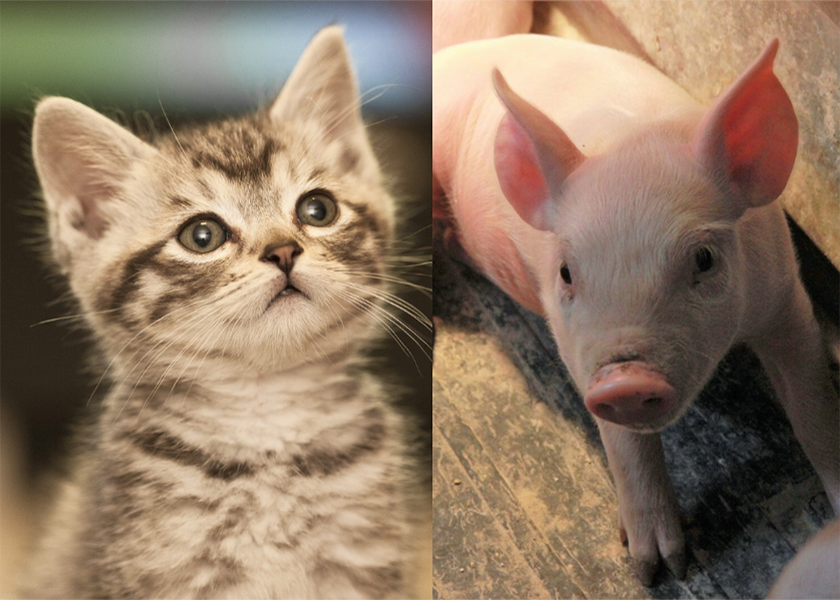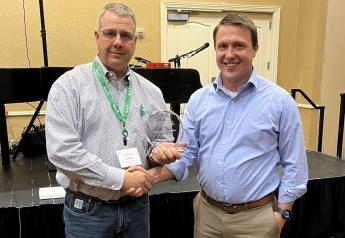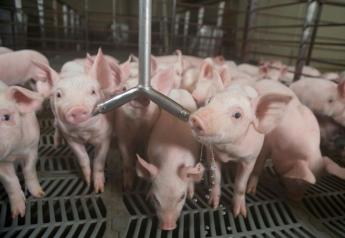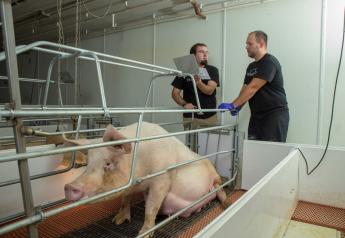The Truth About Cats and Pigs and SARS-CoV-2

Understanding the role pets and livestock play in the transmission of disease from animals to humans is critical. Two new studies out of Kansas State University (K-State) on pigs and cats are increasing the knowledge around SARS-CoV-2, the coronavirus responsible for COVID-19. The research shows domestic cats can be asymptomatic carriers of SARS-CoV-2, but pigs are unlikely to be significant carriers of the virus.
"Other research has shown that COVID-19-infected human patients are transmitting SARS-CoV-2 to cats; this includes domestic cats and even large cats, such as lions and tigers," Jürgen A. Richt, the Regents distinguished professor at K-State in the College of Veterinary Medicine, said in a K-State release. "Our findings are important because of the close association between humans and companion animals."
Cats can spread SARS-CoV-2 efficiently to other cats
There are about 95 million house cats in the U.S., explained Richt, who is the senior author on the two publications in Emerging Microbes & Infections: "SARS-CoV-2 infection, disease and transmission in domestic cats" and "Susceptibility of swine cells and domestic pigs to SARS-CoV-2."
Through their in-depth study at the K-State Biosecurity Research Institute, or BRI, at Pat Roberts Hall, the researchers looked at susceptibility to infection, disease and transmission in domestic cats. The team discovered domestic cats may not have obvious clinical signs of SARS-CoV-2, but can still shed the virus through their nasal, oral and rectal cavities and spread it efficiently to other cats within two days.
Richt said further research is needed to study whether domestic cats can spread the virus to other animals and humans.
"This efficient transmission between domestic cats indicates a significant animal and public health need to investigate a potential human-cat-human transmission chain," Richt said.
Pigs are unlikely careers of SARS-CoV-2
Meanwhile, researchers found that SARS-CoV-2-infected pigs are not susceptible to SARS-CoV-2 infection and do not appear to transmit the virus to contact animals.
"Pigs play an important role in U.S. agriculture, which made it important to determine the potential SARS-CoV-2 susceptibility in pigs," Richt said.
Like the Germans and Chinese, the K-State team concluded that pigs are not susceptible by infection with the U.S. version of the SARS-CoV-2 virus through intratracheal-intranasal-oral challenge and are unlikely to be significant carriers of SARS-CoV-2.
“However, we have to be aware that this only applies to the rather young pigs, the commercial pig breed and the virus we have used for infection. It could be different in an old sow or boar, in a different pig breed or with a different virus,” Richt explains. We always have to be aware that if the virus changes – if the genome changes – the story could be different.”
Read more about this study here in a previous Farm Journal's PORK article.
What's ahead?
The team plans to further study SARS-CoV-2 transmission in cats and pigs. They also plan to study whether cats are immune to SARS-CoV-2 reinfection after they have recovered from a primary SARS-CoV-2 infection, the release said.
"This research is important for risk assessment, implementing mitigation strategies, addressing animal welfare issues, and to develop preclinical animal models for evaluating drug and vaccine candidates for COVID-19," Richt said.
The research has involved other K-State researchers from the department of diagnostic medicine and pathobiology in the College of Veterinary Medicine: Natasha N. Gaudreault, Jessie D. Trujillo, David A. Meekins, Igor Morozov, Daniel W. Madden, Sabarish V. Indran, Dashzeveg Bold, Velmurugan Balaraman, Taeyong Kwon, Bianca L. Artiaga, Konner Cool, Wenjun Ma and Jamie Henningson, also director of the Kansas State Veterinary Diagnostic Laboratory.
Other researchers involved include Mariano Carossino and Udeni B. R. Balasuriya from Louisiana State University; William C. Wilson with the U.S, Department of Agriculture's Arthropod-Borne Animal Disease Research Unit; Adolfo García-Sastre with Icahn School of Medicine at Mount Sinai; and Heinz Feldmann with the National Institutes of Health's National Institute of Allergy and Infectious Diseases.
More from Farm Journal's PORK:
Pigs Do Not Transmit COVID-19, According to K-State Study
New Research Says Pigs, Chickens Are Not Susceptible to COVID-19







